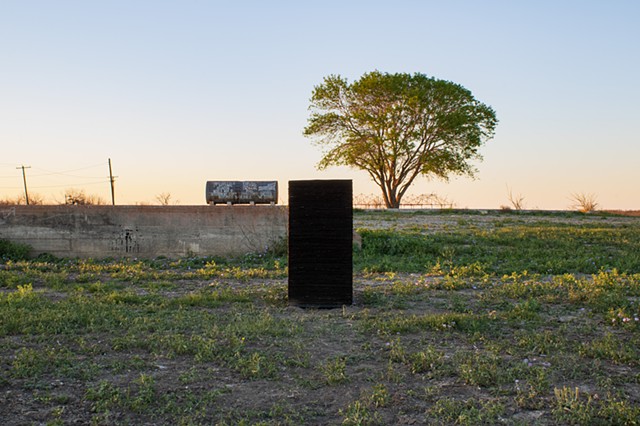Silence (Father, Mother, Sister, Brother).
My Aunt Michi is 11 and my father is 7 when they enter Crystal City. My Aunt Michi and my father's recollections about Crystal City are told from opposing corners: the assimilator and the resistor.
Today when I visit my Aunt Michi at her home, a greystone in Andersonville, she reminds me, "Leave your shoes on; this is an American house." Conversely, the shoes pile up by the door at my father's house in Vancouver, Canada where he has lived since the 70's.
Crystal City, Texas is the site of what was euphemistically dubbed a "U.S. Family Internment Camp". It was the subject of a propaganda film that the Department of Justice made to reinforce the idea that the camps were justifiable. The film suggests that the prisoners volunteered to be there. In reality, they requested transfers from other American concentration camps and DOJ prison camps in order to be reunified with the family members from whom they had been forcibly separated. My own family did this in January 1944.
The film also claims that "each housing unit was furnished with running water". This is not true. My own family's barrack had a sink, but it did not have running water, only a drain. These are not the only misleading statements. Don't believe what you see. But there was a swimming pool, it's true.
The photograph here was taken at the sight of the ruins of that swimming pool and the segregated German and Japanese bath houses. These were built by the prisoners who repurposed an irrigation reservoir in order to create this oasis in the West Texas desert. They mucked out the water hyacinth and water moccasins. It took weeks. Two Peruvian Japanese girls drowned here. My father remembers.
The Crystal City Historical Narrative Report was written in 1945 by the camp director, Joseph O'Rourke. In that document, O'Rourke reflects on the conflicts within the camp community and recommends, one assumes, for future American concentration camps, that the separation of prisoners of, "like nationality [and] of like attitude as well...internment utopia might be realized."
His closing paragraph of the document states, "...our observation has formed the opinion that a woman, because of her usual emotional state, will generally develop an anti-American complex through internment, even if no such prior attitude existed."
Zavala County, TX is on Coahuiltecan, and Carrizo land.
